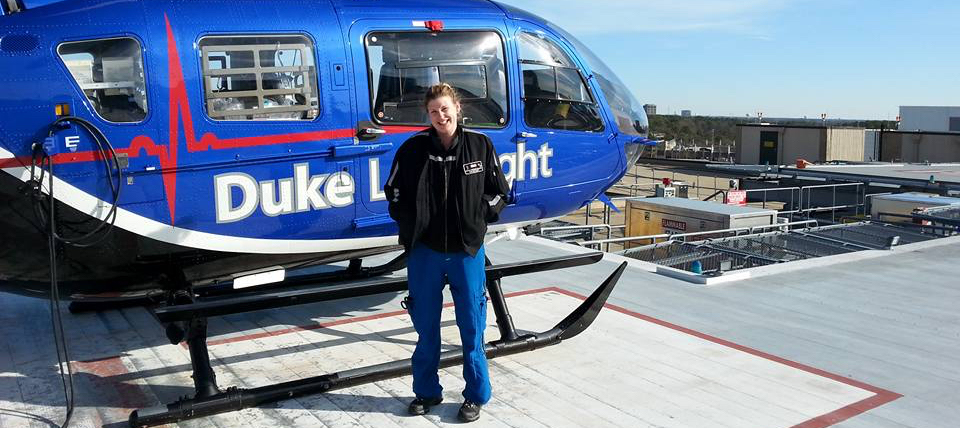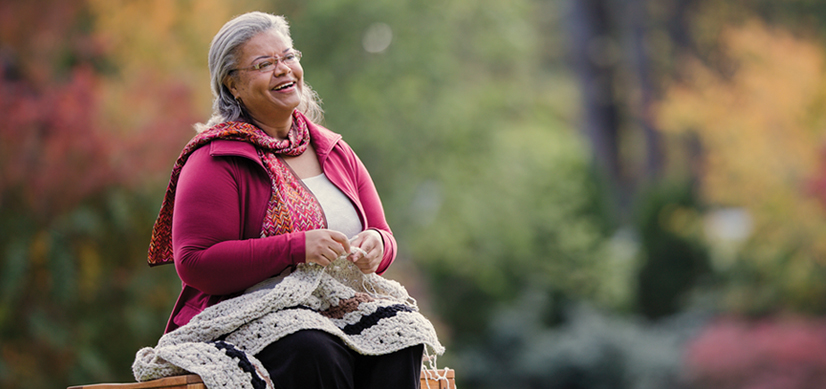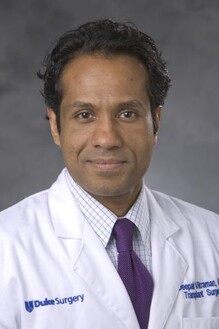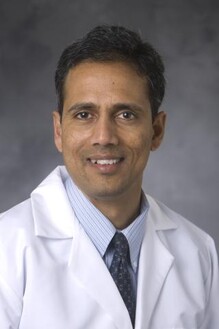 From the DukeHealth.org archives. Content may be out of date.
From the DukeHealth.org archives. Content may be out of date.
Duke Nurse Donates Kidney to Husband, Also a Duke Nurse

Jason and Nichole Diacumski
Duke life flight nurse Nichole Diacumski carried out her most personal rescue mission when she donated a kidney to her husband, Jason, a fellow Duke nurse. The odds were against her being a compatible donor, but she was never in doubt.
Their experience is no different from their history. Since they met, the Apex, NC, couple Nichole and Jason Diacumski have been setting their sights on a goal and making it happen.
It started 15 years ago when they were in the military. Nichole worked in the parts department. Jason, smitten, made repeated runs to pick up aircraft parts from her. Eventually, they met through friends and started dating.
“Three months later, I knew she was the one,” Jason said. Nichole agreed: “We both just knew.” They eloped. Nichole was 19; Jason had just turned 20.
A short time later, Jason’s mom was diagnosed with polycystic kidney disease (PKD), a genetic condition where the kidneys develop fluid-filled cysts, become enlarged and eventually fail. Jason, already diagnosed with high blood pressure, had an ultrasound that confirmed he had inherited the disease.
But he still felt well. He and Nichole left the military and put each other through nursing school. Nichole became a life flight nurse, helicoptering patients from trauma scenes or smaller hospitals to Duke University Hospital for advanced care. Jason joined Duke as a pediatric cardiac intensive care nurse.
Life continued normally until two years ago. “I started getting tired,” he said. “Activities I used to do that were easy were becoming harder and harder.”
Watch Nichole and Jason share their story below.
A Perfect Match
In late 2015, Jason became so ill he had to take leave from work. His doctors at Duke told him plan A was for him to start dialysis while they tried to find a matching donor kidney. But Nichole had already determined she would give him one of hers. “I said, ‘No, plan A is I’m giving him a kidney and plan B is dialysis,’” she said. Nichole hadn’t yet been tested, and the numbers weren’t in her favor: Fewer than 14% of live kidney donations in the U.S. are from a spouse. Undeterred, she told Jason’s doctors, “Mark this conversation; I know I’m a match.”
As certain as Nichole was, it was still emotional when the call came in to confirm she was a compatible donor. “I hung up the phone shaking, and the tears flowed,” she said.

In late February 2016, right after the couple’s 15th wedding anniversary, Duke transplant surgeon Kadiyala V. Ravindra, MBBS, removed one of Nichole’s kidneys. In a nearby operating room, Duke transplant surgeon Deepak Vikraman, MD, removed Jason’s diseased kidneys and implanted Nichole’s healthy one. Both are recovering well and feeling thankful for having truly met their match. “It’s like winning the lottery,” Jason said. “I am eternally grateful. She has literally given me my life back.”
Nichole says she got something back as well. “I watched him get sick slowly, and I just needed his light back,” she said. “I needed him to feel better and to be the person I married 15 years ago.”
They’re both also grateful for the attentive care they received from fellow Duke employees and caregivers. “We had so much support from friends, family and Duke staff that made this adventure so much easier,” said Nichole.
Innovative Post-Transplant Therapy
Even with compatible donors, transplant recipients need lifelong immunosuppressive medication to keep their bodies from rejecting the donor organs. Jason has become one of the first to receive a new kind of immunosuppression at Duke.
“It’s a new medication which is given by infusion once a month instead of taking pills twice a day,” said Vikraman. “Research shows that, with this medication, overall kidney function is much better, three and five years after transplant.”
That’s more good news for Jason—one of the lucky ones among the 50,000 people in the United States who are waiting for a donor kidney at any given time.
Meanwhile, Nichole has been surprised—and happy—to have people reach out to her about becoming kidney donors. “I want to say to anyone out there who’s thinking about donating, ‘Do it. Get tested. It’s not scary,” she said. “And then the joy that you’re going to make someone feel better is amazing. It was so exciting to be able to save somebody.”






